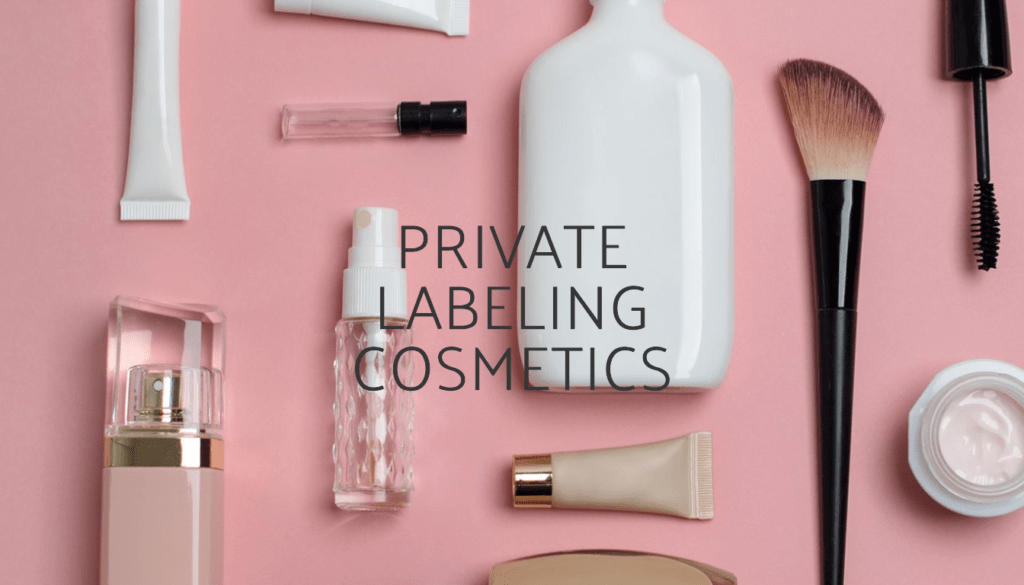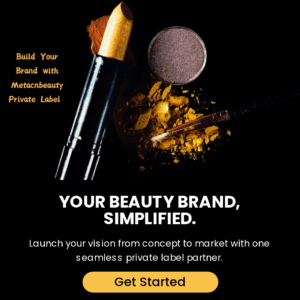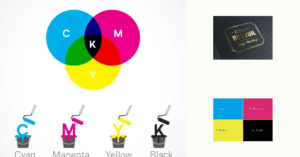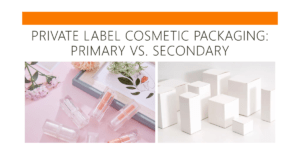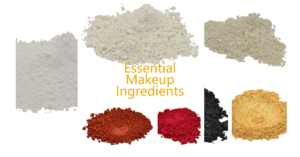Have you ever wondered why some beauty brands seem to dominate the market while others struggle to gain traction? The secret lies in the world of private labeling. But what exactly is private labeling, and why is it poised to shape the future of the beauty industry?
Private label cosmetics offer unique branding opportunities and significant market growth potential for businesses in the beauty industry. With private labeling, retailers and beauty companies can create their own high-quality products, customized to their specific requirements. This opens up a world of possibilities for unique packaging, formulations, and branding that sets their products apart from the competition.
So why exactly is private labeling the way forward in the beauty industry? And how can it benefit your business? Read on to discover the answers.
Key Takeaways:
- Private labeling offers unique branding opportunities in the beauty industry.
- Customizable packaging and formulations allow businesses to create their own distinctive products.
- Private label cosmetics provide market growth potential and the ability to stand out in a competitive industry.
- Choosing the right private labeling cosmetics manufacturer is crucial for success.
- Trends in the private labeling cosmetics industry include sustainability, niche products, and personalization.
Table of Contents
What is Private Label Cosmetics?
Private label cosmetics are cosmetic products manufactured by a third party but marketed under a different brand name. They offer a unique opportunity for retailers and beauty companies to create personalized items that meet the specific requirements of their customers.
Private labeling cosmetics are distinct from white label cosmetics. While white label cosmetics are produced by third-party companies using their own formulations but marketed under the customer’s brand name, private label cosmetics are manufactured using the brand’s cosmetic composition. This means that private label cosmetics allow for greater customization and control over the product’s formulation and ingredients.
By opting for private labeling cosmetics, retailers and beauty companies can establish their own brand identity and differentiate themselves from competitors. They have the freedom to choose the design, packaging, and branding elements that align with their target market.
Private label cosmetics offer retailers and beauty companies the opportunity to develop their own unique product line and build a loyal customer base.
The Distinction from White Label Cosmetics
To further understand the difference between private labeling and white labeling cosmetics, take a look at the table below:
| Aspect | Private Label Cosmetics | White Label Cosmetics |
|---|---|---|
| Manufacturing | Manufactured under the brand’s cosmetic composition | Manufactured using the third-party company’s formula |
| Brand Identity | Marketed under a different brand name | Marketed under the customer’s brand name |
| Customization | Greater control over formulation and ingredients | Limited customization options |
| Brand Ownership | Establishes a unique brand identity | Leverages the reputation of the third-party company |
Benefits of Private Label Makeup Products
Private label makeup products offer numerous benefits for business owners looking to enter the beauty industry. Here are some key advantages:
Affordability
Private label makeup products are a cost-effective option, allowing business owners to create their own brand without the high costs associated with product development and manufacturing. This affordability factor enables businesses to make a significant profit while providing customers with quality cosmetics at competitive prices.
Low Minimum Order
Unlike other manufacturing options, private labeling cosmetics offer the advantage of low minimum order quantities. This flexibility is particularly beneficial for small businesses or startups with limited budgets, as they can purchase smaller amounts of products at reasonable rates. It eliminates the need for extensive storage or excessive inventory, allowing businesses to reduce financial risk and focus on marketing and selling their products effectively.
Fast Turnaround
Private label makeup products offer a fast turnaround time, which is essential in the beauty industry where trends change rapidly. Once a business owner has finalized their product specifications, the private label manufacturer can swiftly produce and deliver the items to market. This quick turnaround time ensures that businesses can stay competitive and capitalize on emerging trends without delays.
Customizable Packaging
Private label cosmetics give businesses the opportunity to create their own unique branding through customizable packaging options. This means that business owners can select the packaging design, color schemes, and even add their brand name and logo to the products without incurring additional costs. Customizable packaging helps businesses establish their brand identity and create visually appealing products that stand out on store shelves or online marketplaces.
Market Stability
Private labeling makeup products provide market stability as they are backed by experienced producers. These producers have the resources, knowledge, and industry expertise to ensure that the products meet high-quality standards. The stability of private label products creates a sense of trust among consumers, as they know that the products are manufactured by reliable and reputable companies.
These benefits make private labeling makeup products an attractive choice for both new and established businesses in the beauty industry. From affordability to customizable packaging, the advantages of private label cosmetics contribute to business success and customer satisfaction.
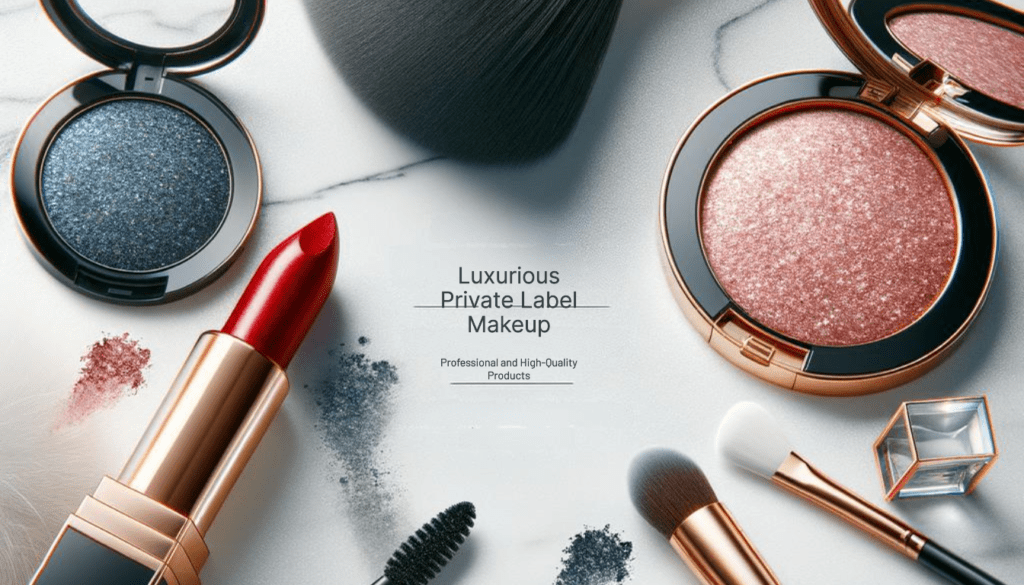
Choosing a Private Labeling Cosmetics Manufacturer
When it comes to private labeling cosmetics, selecting the right manufacturer is crucial for the success of your brand. A reputable private label cosmetics manufacturer will ensure the quality and safety of your products, provide a wide range of packaging and formulation options, and offer the necessary certifications to meet industry standards. Additionally, understanding their minimum order requirements is essential to align with your business’s capabilities. Let’s explore the key factors to consider when choosing a private labeling cosmetics manufacturer.
Quality of Raw Materials
The quality of raw materials used in your private labeling cosmetics directly impacts the effectiveness, safety, and overall reputation of your products. It is essential to partner with a manufacturer that prioritizes the use of high-quality ingredients sourced from trusted suppliers. Ensure that the manufacturer conducts rigorous testing to guarantee the purity and authenticity of the raw materials, eliminating any potential risks to the end-users.
Ingredient Safety
Ingredient safety is of paramount importance when it comes to cosmetics. The manufacturer should adhere to strict safety regulations and practices, ensuring that all ingredients used in the formulation of your products are safe, non-toxic, and compliant with relevant industry standards. Inquire about their manufacturing processes and quality control measures to ensure the highest level of ingredient safety.
Packaging and Formulation Options
One of the advantages of private labeling cosmetics is the ability to customize the packaging and formulation of your products. Look for a manufacturer that offers a wide range of packaging options, including bottles, jars, tubes, and labels, allowing you to create a unique and visually appealing brand. Additionally, ensure that they provide formulation options tailored to your specific product requirements, enabling you to create high-quality cosmetics that meet the needs and preferences of your target market.
Certifications
Certifications play a vital role in establishing the credibility and trustworthiness of your private labeling cosmetics. Look for a manufacturer that holds relevant certifications, such as Good Manufacturing Practice (GMP) certification, ISO certification, or organic certification, depending on your product goals and target market. These certifications validate the manufacturer’s commitment to quality, safety, and ethical practices.
Minimum Order Requirements
Understanding the minimum order requirements of your chosen private labeling cosmetics manufacturer is crucial to align with your business’s capabilities and financial viability. Be sure to inquire about their minimum order quantities and any associated costs or discounts for larger orders. This information will help you plan your inventory and budget effectively.
By considering these factors, you can make an informed decision when choosing a private label cosmetics manufacturer. Partnering with the right manufacturer will not only ensure the quality and safety of your products but also lay the foundation for a successful and profitable beauty brand. You may interested in learning more about How to Choose a Private Labeling Cosmetics Partner Manufacturer here.
How to Sell Private Labeling Cosmetics
To successfully sell private labeling cosmetics, there are several key steps you need to follow. By implementing these strategies, you can create a profitable business that meets the needs of your target customers.
Pick a Profitable Niche
Before launching your private labeling cosmetics brand, it’s crucial to pick a niche that aligns with market trends and consumer demands. Consider focusing on specific segments such as vegan cosmetics or organic products to target a niche audience that values these attributes. By specializing in a niche, you can differentiate your brand and attract customers who are seeking unique offerings.
Find a Reliable Private Label Cosmetics Company
To ensure high-quality products, it’s essential to collaborate with a reputable private labeling cosmetics company. Look for manufacturers that use premium raw materials and have a track record of producing exceptional products. Thoroughly research and vet potential partners to ensure they meet your standards and can deliver consistent quality.
Design an Eye-Catching Business Logo
A well-designed business logo plays a significant role in building brand recognition and attracting customers. Create a logo that reflects your brand’s identity and encapsulates the essence of your cosmetic line. Consider consulting with professional designers or agencies to ensure your logo stands out in a crowded market.
Establish Diverse Sales Channels
To maximize your reach and sales potential, establish diverse sales channels for your private labeling cosmetics. Create an online store that showcases your products and offers a seamless shopping experience. Leverage established marketplaces like Amazon or eBay to tap into a broader customer base. Additionally, consider partnering with local retail stores or salons to expand your distribution network.
Order Your Private Label Products
Once you have finalized product selection, packaging, and branding, it’s time to place your order with the private label cosmetics manufacturer. Ensure that you have a clear understanding of the minimum order requirements and lead times. By effectively managing your inventory and maintaining consistent stock, you can meet customer demand and avoid potential shortages.
| Step | Action |
|---|---|
| 1 | Pick a Profitable Niche |
| 2 | Find a Reliable Private Label Cosmetics Company |
| 3 | Design an Eye-Catching Business Logo |
| 4 | Establish Diverse Sales Channels |
| 5 | Order Your Private Label Products |
Trends in the Private Label Cosmetics Industry
The private labeling cosmetics industry is witnessing several significant trends that are shaping the future of the market. Understanding these trends is essential for businesses looking to stay ahead of the curve and capitalize on emerging opportunities. Let’s delve into the key trends reshaping the private labeling cosmetics industry:
Sustainable and Eco-friendly Products
Consumers are increasingly prioritizing sustainability and environmental consciousness when it comes to their cosmetic choices. There is a growing demand for private labeling cosmetics that are made using sustainable sourcing methods and eco-friendly packaging materials. Businesses that offer sustainable and eco-friendly products can attract a larger customer base and establish themselves as responsible brands.
Niche and Specialty Cosmetics
Customers are moving away from mainstream, mass-produced cosmetics and seeking out unique, niche, and specialty products. Private label brands that cater to specific beauty needs, such as organic, vegan, or cruelty-free cosmetics, have gained popularity. By focusing on specialized product lines, businesses can stand out in the market and attract a loyal customer base.
Technology and Digital Marketing
The private label cosmetics industry is leveraging technology and digital marketing strategies to reach and engage with customers effectively. Social media platforms have become powerful tools for brand promotion and customer engagement. By utilizing targeted advertisements, influencer partnerships, and engaging content, private label cosmetic brands can expand their reach and enhance customer loyalty.
Personalization and Customization
Personalization and customization have emerged as significant trends in the cosmetics industry. Customers now seek products that cater to their unique preferences and individual needs. Private label cosmetics brands are offering customization options, such as personalized color palettes, skincare formulations, and packaging designs. By offering personalized products, businesses can enhance customer satisfaction and strengthen brand loyalty.
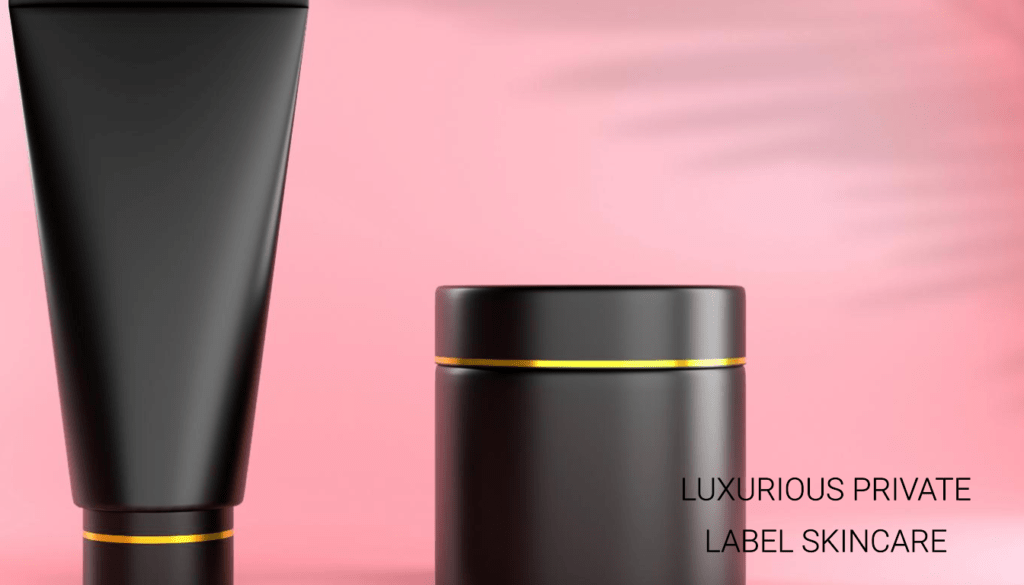
| Trend | Description |
|---|---|
| Sustainable and Eco-friendly Products | Private label cosmetics brands are focusing on environmentally friendly practices and packaging materials. |
| Niche and Specialty Cosmetics | Customers are seeking unique and specialized cosmetic products, leading to the growth of niche markets. |
| Technology and Digital Marketing | Private label cosmetics companies are utilizing social media and digital marketing strategies to reach and engage with customers. |
| Personalization and Customization | Brands are offering personalized cosmetic products to meet the diverse needs and preferences of customers. |
Challenges in the Private Labeling Cosmetics Industry
The private label cosmetics industry is not without its challenges. From intense competition to rising costs and regulatory compliance, businesses in this sector face various obstacles that require careful navigation to succeed.
Intense Competition and Saturation
As private label cosmetics gain popularity, the market becomes increasingly saturated with brands vying for consumer attention. With numerous players offering similar products, businesses must find ways to stand out and differentiate themselves from the competition.
Rising Costs of Production and Materials
Operating in the private label cosmetics industry can come with significant costs. From production expenses to sourcing high-quality raw materials, businesses need to carefully manage their budgets to maintain profitability. Additionally, contract manufacturing fees can add to the financial burden, affecting the bottom line.
Regulatory Compliance and Standards
The private label cosmetics industry is subject to strict regulations and standards to ensure the safety and quality of products. Businesses must comply with various guidelines, including ingredient restrictions, labeling requirements, and testing protocols. Failing to meet these standards can lead to legal issues and damage the brand’s reputation.
Changing Consumer Preferences
Consumer preferences and trends are constantly evolving, posing a challenge for private label cosmetics manufacturers and retailers. Businesses must stay attuned to shifts in consumer behavior, such as the growing demand for clean and sustainable beauty products. Adapting to these changing preferences is crucial to staying relevant in the market.
In summary, the private label cosmetics industry faces challenges such as intense competition, rising costs, regulatory compliance, and changing consumer preferences. Successfully navigating these challenges requires strategic planning, innovation, and a strong understanding of market trends.
Opportunities in the Private Labeling Cosmetics Industry
The private label cosmetics industry presents numerous opportunities for brand growth and success. By leveraging these opportunities, businesses can expand into new and emerging markets, diversify their product offerings, and invest in research and development to stay ahead of the competition.
Expansion into New Markets
Private label cosmetics offer a unique chance for businesses to tap into new and untapped markets. With the ability to customize products to cater to diverse customer demographics, brands can enter markets that were previously difficult to access. Whether it’s targeting a specific geographical region or catering to a niche market segment, private label cosmetics allow for flexibility and adaptability in expanding the brand’s reach.
Diversification of Product Offerings
Another opportunity within the private label cosmetics industry lies in the diversification of product offerings. By expanding the range of cosmetic products, brands can attract new customers and keep their existing customer base engaged. This can include introducing new product lines, exploring different formulations, or incorporating trending ingredients. Diversification enables brands to cater to a wider range of customer preferences and stay relevant in a dynamic marketplace.
Investment in Research and Development
Investing in research and development is essential for long-term success in the private label cosmetics industry. By staying at the forefront of trends and innovations, brands can develop unique and high-performing products that set them apart from competitors. Research and development also enable brands to anticipate customer needs, create cutting-edge formulations, and improve product quality. By investing in continuous improvement and innovation, brands can establish themselves as leaders in the industry.
Conclusion
Private label cosmetics are redefining the beauty industry, providing a plethora of unique opportunities for branding and driving market growth. The combination of affordability, customization options, and market stability has elevated private label cosmetics as the favored choice in the beauty business. As the industry continues to evolve and flourish, it becomes imperative to acknowledge and embrace the rising trend of private label cosmetics that is revolutionizing the game.
Private labeling presents the beauty industry with immense potential by offering brands the chance to establish their individual identity and connect with their target audience in a profound way. With private label cosmetics, businesses can create customized products, tailored packaging, and unique branding that resonate with their customers.
Furthermore, private label cosmetics open up new doors for market growth and expansion. Whether it’s delving into untapped markets or diversifying product offerings to cater to diverse consumer needs, private label cosmetics empower brands to stay ahead in an ever-evolving industry.
FAQ
What are private label cosmetics?
Private label cosmetics are cosmetic products manufactured by a third party but marketed under a different brand name. They allow retailers and beauty companies to create unique items tailored to their customer’s requirements. Private label cosmetics differ from white label cosmetics, as white label cosmetics are made by hired third-party companies using their own formulations under the customer’s brand name, while private label goods are manufactured using the brand’s cosmetic composition.
What are the benefits of private label makeup products?
Private label makeup products offer affordability, allowing business owners to make a significant profit. They also have low minimum order quantities, enabling small companies to purchase smaller amounts at reasonable rates. Private label products can be available to market in a few weeks, providing fast turnaround times. Additionally, private labeling allows for customizable packaging options, allowing businesses to select the name and logo they want without incurring additional costs. Private label products also offer market stability, as they are backed by experienced producers.
How do I choose a private label cosmetics manufacturer?
When choosing a private label cosmetics manufacturer, it is important to consider the quality of their raw materials, ensuring they are safe and of good quality. Additionally, inquire about the manufacturer’s packaging and formulation options, as well as their certifications. It is essential to know the minimum order requirements to align with your business’s capabilities.
How do I sell private label cosmetics?
To sell private label cosmetics, you need to find profitable products that meet the requirements of your customers. Pick a niche, such as vegan cosmetics or organic cosmetics, to target a specific population. Find a reliable private label cosmetics company that uses high-quality raw materials. Design a business logo that reflects your brand’s identity. Establish sales channels, such as an online store or a presence on established marketplaces. Finally, order your private label products from the manufacturer.
What are the trends in the private label cosmetics industry?
The private label cosmetics industry is seeing a rising demand for sustainable and eco-friendly products, as customers perceive them as safer and better for the environment. Niche and specialty cosmetics are also gaining popularity, as customers seek unique and specialized products. Technology and digital marketing play a crucial role, with a focus on leveraging social media to reach potential customers. Additionally, personalization and customization are on the rise, with customers preferring products tailored to their specific needs.
What are the challenges in the private label cosmetics industry?
The private label cosmetics industry faces challenges such as intense competition, saturation, and the need to constantly differentiate products. Rising costs of production and materials, including contract manufacturing fees, can impact profitability. Regulatory compliance is essential, as the industry is subject to strict regulations and standards. Finally, changing consumer preferences require constant adaptation to stay relevant in the market.
What are the opportunities in the private label cosmetics industry?
The private label cosmetics industry offers opportunities for expansion into new and emerging markets, catering to diverse customer demographics. Diversifying product offerings can attract new customers and keep the brand fresh. Investment in research and development can help identify trends and set the brand apart from competitors.
